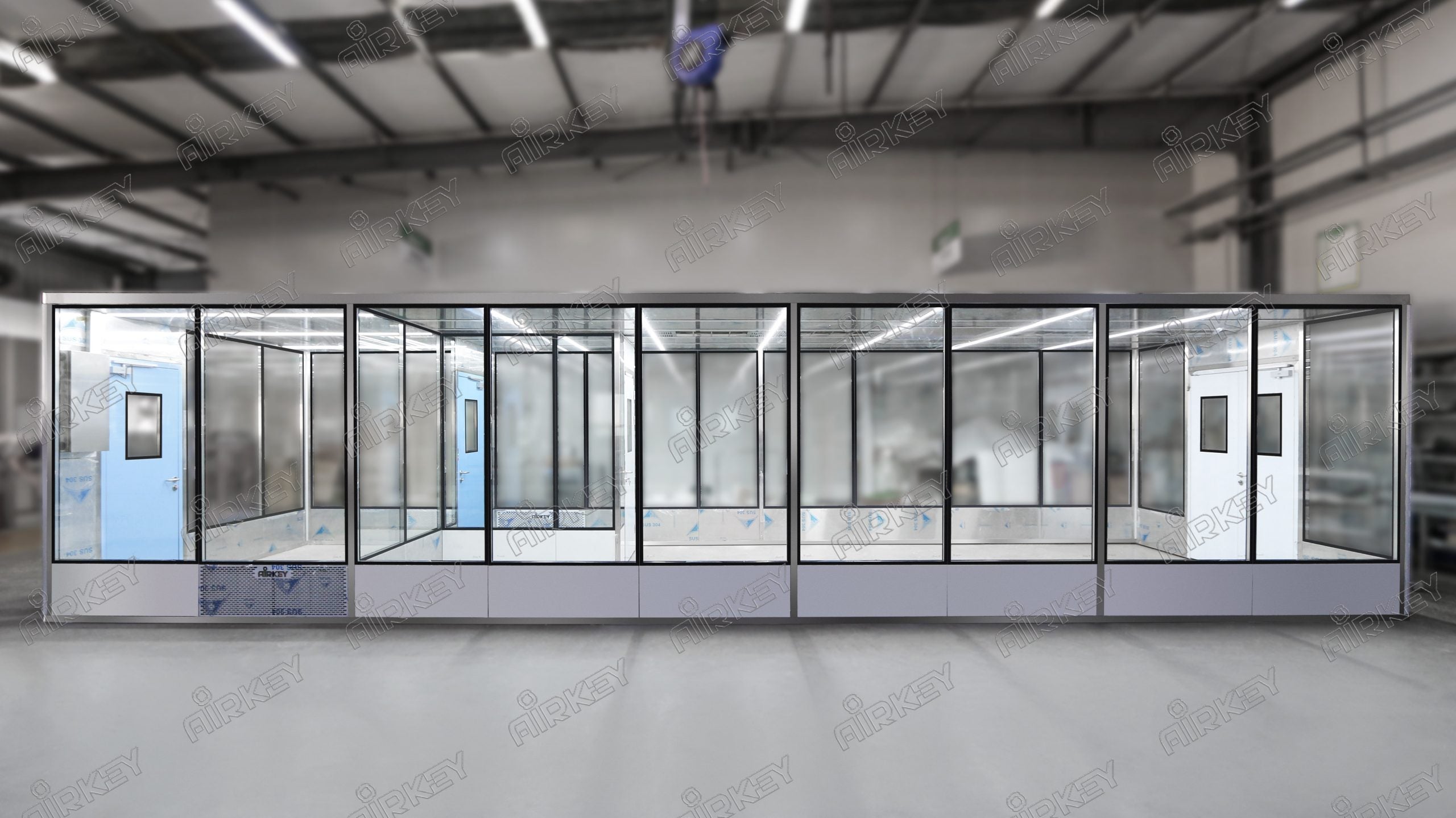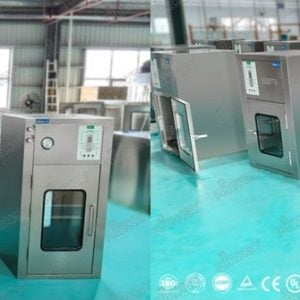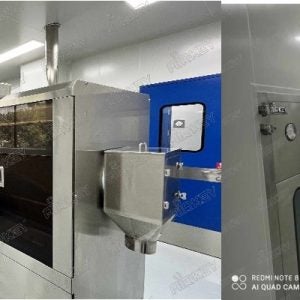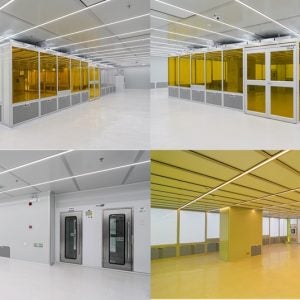Flexible & Cost-Effective Modular Cleanroom Solution for US Biotechnology Laboratory

Airkey, a leading modular cleanroom solutions provider from China,has successfully delivered an advanced biotechnology cleanroom to a major US life sciences company. The project integrating stringent contamination control with operator-focused ergonomic design.
So, do you know what is biotechnology laboratory? In which research fields is it applied? And why do biotechnology experiments need to be conducted in clean room?
What is a biotechnology laboratory?
A biotechnology laboratory is a specialized experimental environment used for life science research, drug development, and bioprocess studies. Unlike conventional laboratories, it requires stricter environmental controls and biosafety levels to ensure the scientific integrity of experiments, the safety of personnel, and the compliance of products.
Application Areas
Biotechnology laboratories are widely used in:
Genetic engineering and molecular biology (e.g., gene editing, DNA recombination); Cell and tissue culture (stem cells, regenerative medicine); Vaccine and drug development (antibody drugs, biologics); Biopharmaceuticals and protein engineering (large-scale bioreactor development)
Agricultural and food biotechnology (genetically modified crops, food safety testing); Environmental and industrial biotechnology (microbial metabolism, pollution control).
Why do biotechnology experiments need clean rooms?
Biotechnology experiments are highly dependent on a stable and pollution-free environment. Any particles, bacteria or chemicals in the air may cause data deviations or product scrapping. The functions of a cleanroom are mainly reflected in the following aspects:
- Preventing external contamination – Through HEPA/ULPA filtration and positive pressure design, dust and bacteria are prevented from entering.
- Ensure stable and reliable experimental results – Strictly control temperature, humidity and cleanliness to guarantee data consistency.
- Ensuring personnel and environmental safety – Zoned layout and differential pressure control can effectively isolate potential biological risks.
- Comply with international regulations and GMP standards – Drug and vaccine research and development must meet the requirements of the FDA, EMA, etc., and clean rooms are the key to compliant production.
Next, let’s take a look at a modular biotechnology laboratory we built specifically for a US client. It was quickly installed and delivered in just 5 days. Major components were pre-assembled and tested at the factory, requiring only three workers, reducing labor costs. It doesn’t rely on existing buildings or ceilings, and is independently load-bearing. Its modular structure allows it to be completely disassembled, transported, and reassembled for upgrades and expansions when a project or site is relocated.
This biotechnology modular cleanroom incorporates specialized design elements that are critical for biotechnology applications.
The newly operational cleanroom features specialized design elements critical for biotechnology applications:
Project: Biotech Modular Cleanroom
Area: 38.5 ㎡
Inner height:2.45m
Class: ISO 7 (Class10,000);
Industry: Biotech Manufacturing
Location: US
The Specifications of this project:
- Stainless steel 304 framework with seismic-resistant engineering
- Stainless steel-clad (SS304) sandwich panel walls offering:
Superior corrosion resistance against chemical disinfectants
Seamless, non-porous surfaces for optimal cleanability
Structural integrity for heavy-duty bioprocessing equipment
- Large and Continuous Windows made of double glazed glass with high thermal insulation and corrosion resistance performance
- Stainless steel-clad (SS304) Doors for main process room to create a completely corrosion resistant workspace that could withstand aggressive sterilization protocols
Innovative Environmental Control System
The facility incorporates a dual-mode HVAC solution that exceeds ISO classification requirements:
- Ceiling-mounted Fan Filter Units (FFUs):
- Provide laminar airflow with ≥99.99% filtration efficiency at 0.3μm
- Maintain consistent ISO Class 7 conditions during operations
- Cassette Split Air Conditioning:
- Delivers precise temperature control (±0.5°C)
- Energy recovery system reduces operational costs by 25%
- Integrated humidity management for sensitive bioprocesses
- Tailored control systems
- Control panel to regulate the air velocity
- Pressure gauge for each room separately to monitor the difference pressure in time
Human-Centric Design Features
Understanding the extended work cycles in biotech facilities, the design incorporates:
- Oversized double-glazed windows:
Maximise natural light to reduce operator fatigue
Maintain thermal insulation with double glazed glasses
- Smooth radius corners for improved cleanability
Eliminating dead angles for cleaning
Preventing pollution resulted from ducts accumulation
For detailed inquiries, please feel free to visit our website www.airkeyx.com




